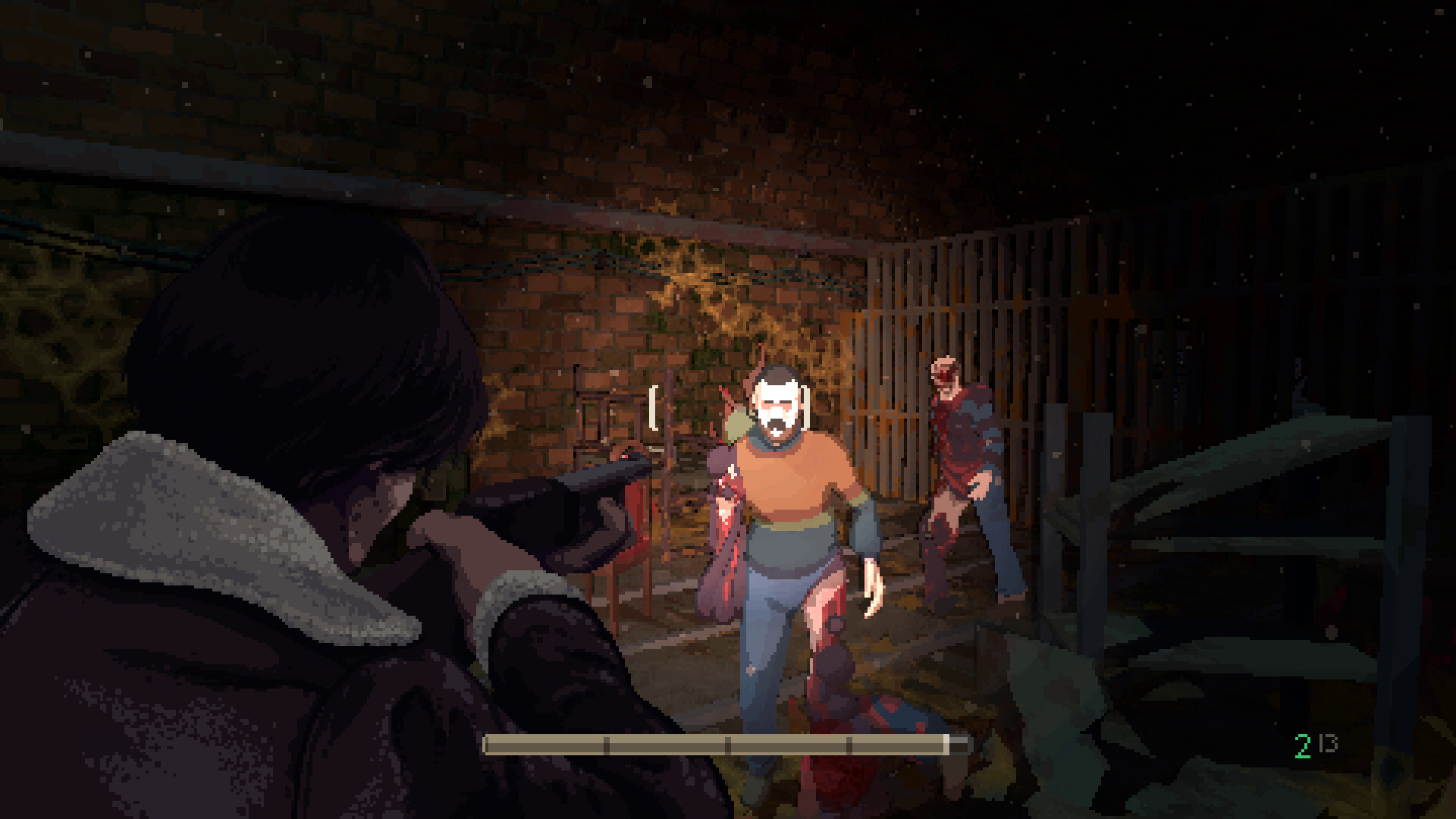Ultra-Indie Spotlight Sunday: Wayward Harbor
Wayward Harbor is about trying to escape from a creeping creature who is haunting your nautical little home. The premise is straightforward and the concept familiar. But the caveat of this is that the creature is invisible to the naked eye, and you can only see it in a handheld mirror. Surely this won’t cause too much trouble. If Perseus could do it, so can you. Right?

Conceptual Meta-Wank:
Every so often a game will come along and subvert the traditional methods of horror game gameplay. For DOOM 3 it was some novel flashlight use, Amnesia had the catastrophically intense psychosis your character would experience by looking at a weird guy, Fatal Frame gave you a camera. Wayward Harbor is a lot like this.
The novelty of Wayward Harbor is that it forces you to look behind you through a mirror for almost the entirety of the game. This is unbelievably tough for me to wrap my brain around. I’ve got a lot of respect for chameleons because I simply cannot look in two different directions at once. Especially when trying to walk in a given destination. The challenge of Wayward Harbor’s confusing gameplay elevates the terror to another level.

Non-Wanky Game Recap:
There’s a creature in the house. Run away when it’s near, hide under a table til it’s gone, and find key items to go forward. Wayward Harbor is simple in that regard. The area you explore is not all too complex, but trying to see it through two different perspectives makes it all a lot more intense.

What Works:
Wayward Harbor has a lot of good stuff going for it. On the one hand, the game itself is expertly made. Stunning visuals, clean mechanics, and a functional mirror, which as I understand it, is pretty tough to make in a game. So too is the complete lack of explanation (though a conspicuous portrait of H.P. Lovecraft does give us something of a hint). But more than that, the extreme amount of focus you must use to beat the game is what makes this all such a delightfully terrifying experience.

What Doesn’t:
The simplicity of Wayward Harbor could also be a bit of a downer for some. A larger, more intricate map would make the game feel a lot more full. So too would some other means of interacting with the creature make it more interesting as well. Interactions other than being devoured every so often, that is.
How To Fix It:
The length of Wayward Harbor is hardly an issue, and I can certainly imagine there being more content for this game. Certainly, they could use a few more puzzles that involve a mirror. Maybe reading clues backward or something of the like. Regardless, for a free game, this is a tremendous project and I look forward to the developers’ other works.

Wanky Musings:
It’s remarkable how simple an idea could make the run-hide genre so absolutely terrifying. Wayward Harbor has a straightforward premise that nonetheless caught me completely off guard, which is a rare delight. Changing the player’s perspective even a little makes the whole experience something new and fun. And for that, Wayward Harbor is an incredible game.
You can play Wayward Harbor for free on itch.io by clicking here.




